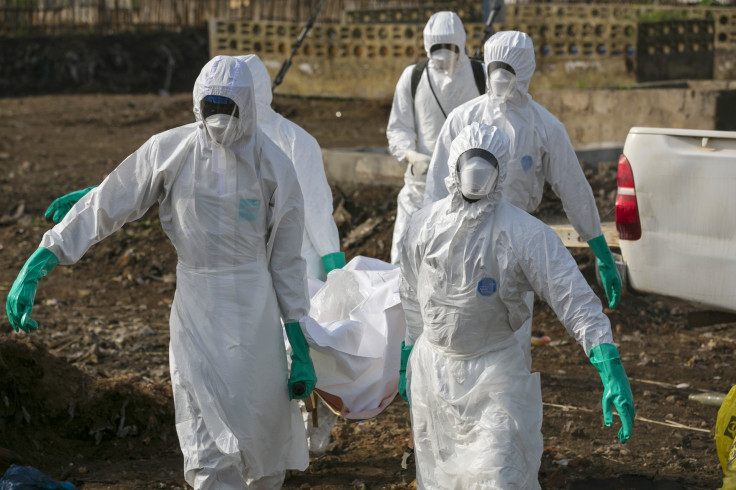British Doctors In Sierra Leone Halt Work After Untested Drug Is Given To Ebola Patients

British doctors walked out of an Ebola treatment center in Sierra Leone after patients at the center were given a heart drug that had not been tested against the virus in animals and humans. One of the senior doctors at the center complained and called the move "reckless," The Guardian reported, adding that the doctors left soon after other scientists also expressed concern over the drug's safety.
The 14-member team, which included doctors, nurses and paramedics, halted work at the Lakka treatment center in Freetown. The 22-bed treatment center, operated by an Italian nonprofit organization, Emergency, is part of the firm’s strategy to bring premium cardiac surgery facilities to some of the poorest parts of Africa. Doctors at the Lakka center said that patients were administered large doses of the drug, which caused several medical complications.
“We were made aware of the experimental use of amiodarone very early on … Our immediate concerns were surrounding the use of amiodarone on this vulnerable and difficult group of patients with complex physiology and the concern that the toxic side-effects of amiodarone could in fact be contributing to increased morbidity within the ETC (Ebola Treatment Center),” the British doctors at the center wrote to UK-Med, which had hired volunteers from the National Health Service to work in Sierra Leone, The Guardian reported.
The UK team had also said that the drug was being administered without appropriate monitoring or patient consent, and alerted the Department for International Development (DfID), which has funded the non-profit's initiatives. Following this, DfiD asked Emergency to discontinue the drug.
“As soon as we became aware, we asked Emergency to stop administering it and withdrew NHS volunteers,” a DfID spokesperson said, according to The Guardian, adding that it is working closely with Emergency to ensure all clinical activity is upto the national standards.
Jeremy Farrar, director of the Wellcome Trust, which is funding drug trials in West Africa, said, according to The Guardian, that the drug which affects the heart, should be used only under strict conditions. He also said that the World Health Organization had decided against adding the drug to its priority list for potential Ebola cures.
Health care staff at the hospital also complained that the needles, which were being frequently used, had put the employees at risk, and two doctors at the center had reportedly tested positive for the Ebola virus.
The Ebola virus has so far claimed more than 7,000 lives, mostly in West Africa.
© Copyright IBTimes 2024. All rights reserved.












